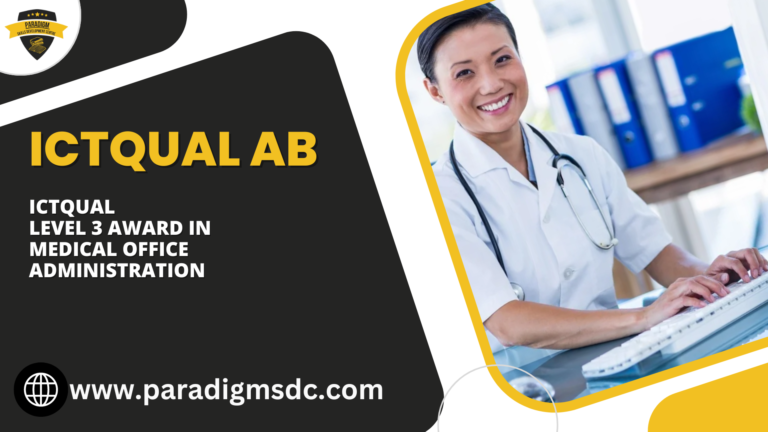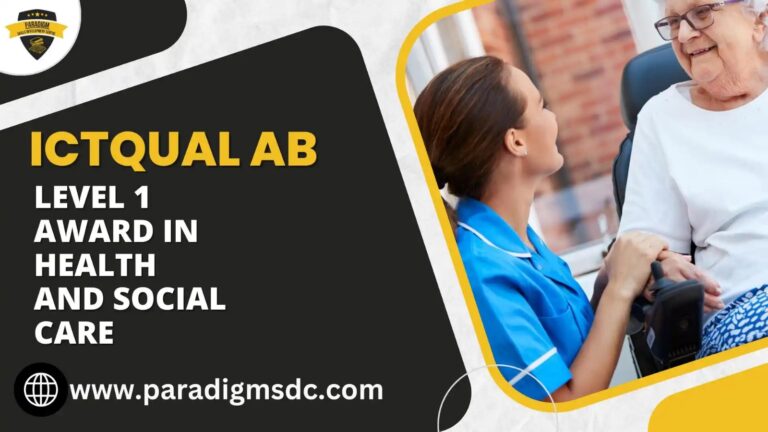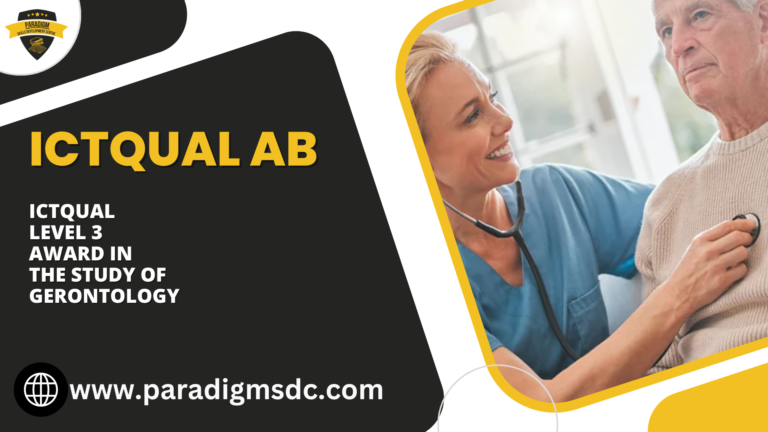Course Introduction
The ICTQual ISO 22000 Food Safety Management System Lead Implementer Course provides comprehensive training on the principles and practices of establishing, implementing, managing, and maintaining a FSMS based on ISO 22000:2018. This course offers a deep dive into food safety management standards and equips participants with the necessary skills to lead and implement a FSMS in any organization within the food industry.
Course Overview
The course covers the key components and requirements of ISO 22000:2018, including the context of the organization, leadership, planning, support, operation, performance evaluation, and improvement. It blends theoretical knowledge with practical application, ensuring participants can translate what they learn into real-world scenarios.
Course Study Units
- Introduction to Food Safety Management Systems
- Understanding ISO 22000 Requirements
- Food Safety Hazards and Risk Assessment
- Developing a Food Safety Management System
- Implementation and Operational Planning
- Monitoring and Measurement of Food Safety Performance
- Continual Improvement and Corrective Actions
- Legal and Regulatory Compliance
- Documentation and Record-keeping
- Communication and Training
Learning Outcomes
Upon completing this course, participants will be able to:
- Introduction to Food Safety Management Systems
- Understand the fundamental concepts and principles of food safety management systems.
- Recognize the significance of implementing effective food safety management systems in various food-related industries.
- Gain familiarity with the ISO 22000 standard and its role in ensuring food safety throughout the supply chain.
- Understanding ISO 22000 Requirements
- Familiarize oneself with the key clauses and requirements of the ISO 22000 standard.
- Interpret and apply the principles of HACCP (Hazard Analysis and Critical Control Points) within the context of ISO 22000.
- Identify and comprehend the prerequisites programs (PRPs) and operational prerequisite programs (OPRPs) mandated by ISO 22000.
- Food Safety Hazards and Risk Assessment
- Identify potential food safety hazards that may arise at various stages of the food chain.
- Apply risk assessment methodologies to evaluate and prioritize food safety risks.
- Develop strategies for effectively managing and mitigating food safety hazards in accordance with ISO 22000 requirements.
- Developing a Food Safety Management System
- Develop a comprehensive framework for a food safety management system aligned with ISO 22000 standards.
- Establish procedures for effective communication, emergency preparedness, and response within the FSMS.
- Implement control measures to prevent and mitigate food safety hazards identified during risk assessment.
- Implementation and Operational Planning
- Plan and schedule the implementation process of the FSMS within an organization.
- Allocate resources and responsibilities effectively to ensure successful implementation.
- Set SMART (Specific, Measurable, Achievable, Relevant, Time-bound) objectives and targets for the FSMS.
- Monitoring and Measurement of Food Safety Performance
- Develop procedures for monitoring and measuring food safety performance within the FSMS.
- Establish criteria for evaluating the effectiveness of control measures and compliance with ISO 22000 requirements.
- Conduct internal audits and management reviews to assess the performance of the FSMS and identify areas for improvement.
- Continual Improvement and Corrective Actions
- Implement corrective actions to address non-conformities and improve the effectiveness of the FSMS.
- Establish processes for continual improvement, including the identification of opportunities for enhancement.
- Document and communicate improvements made to the FSMS to stakeholders within the organization.
- Legal and Regulatory Compliance
- Understand the legal and regulatory requirements related to food safety applicable to the organization.
- Ensure compliance with relevant legislation, standards, and regulations governing food safety.
- Prepare for and manage regulatory inspections and audits effectively.
- Documentation and Record-keeping
- Develop and maintain documentation procedures for the FSMS, including policies, procedures, and work instructions.
- Establish systems for record-keeping to ensure accurate documentation of food safety activities and processes.
- Implement document control measures to manage revisions and updates to FSMS documentation.
- Communication and Training
- Establish effective communication channels for internal and external stakeholders regarding food safety requirements and procedures.
- Develop and deliver training programs to raise awareness and ensure competency in food safety practices among employees.
- Manage communication during emergencies, incidents, and product recalls to minimize risks and maintain consumer confidence.
Course Benefits
- Enhanced Knowledge: Gain a thorough understanding of ISO 22000:2018 standards and food safety management principles.
- Practical Skills: Develop practical skills for implementing and managing a FSMS.
- Career Advancement: Enhance your qualifications and career prospects in the food industry.
- Organizational Improvement: Contribute to the improvement of food safety practices within your organization.
- Certification Preparation: Prepare your organization for successful ISO 22000 certification.
Who is this Course For?
- Food Safety Managers and Consultants: Professionals responsible for food safety management within their organizations.
- Quality Assurance Personnel: Individuals involved in maintaining quality and safety standards in the food industry.
- Internal and External Auditors: Auditors seeking to enhance their knowledge of ISO 22000 and FSMS.
- Food Industry Professionals: Anyone involved in the production, processing, packaging, distribution, or retail of food products.
- Regulatory Authorities: Government officials and regulators overseeing food safety standards and compliance.
Future Progression
After completing the ICTQual ISO 22000 Food Safety Management System Lead Implementer Course, participants can pursue further qualifications and certifications, such as:
- ISO 22000 Lead Auditor: Deepen your auditing skills with a focus on ISO 22000 standards.
- Advanced Food Safety Courses: Explore specialized courses in HACCP, allergen management, and more.
- Professional Certifications: Obtain certifications from recognized bodies to enhance your credentials.
- Continuous Professional Development: Stay updated with the latest trends and best practices in food safety management.
Enrolling in the ICTQual ISO 22000 Food Safety Management System Lead Implementer Course is a strategic step towards ensuring food safety, enhancing your career, and contributing to the well-being of consumers worldwide. Join us to become a leader in food safety management and make a significant impact in the food industry.







